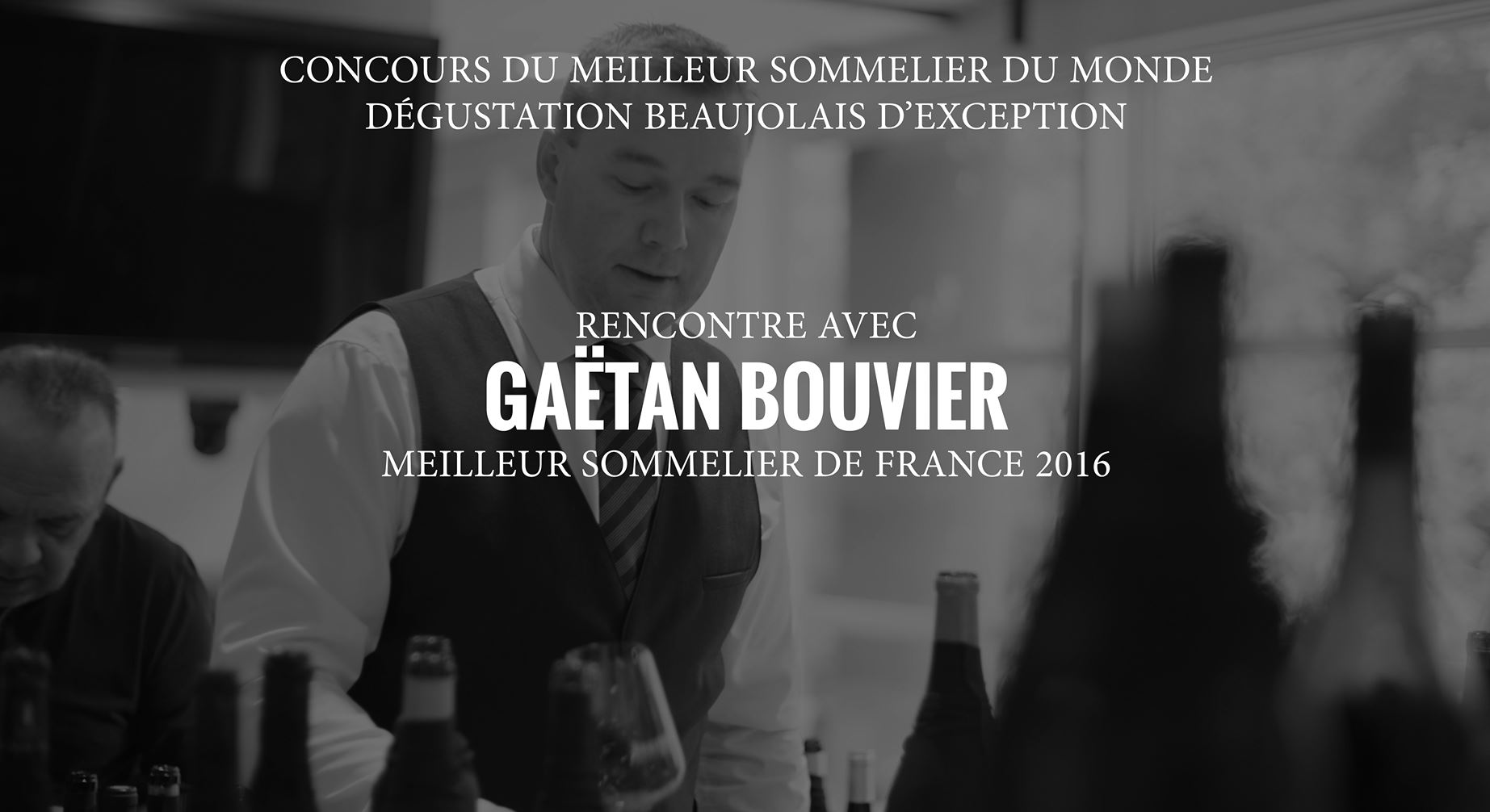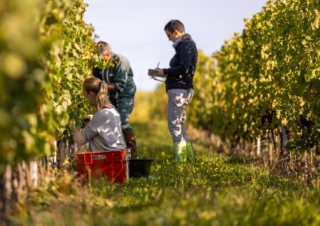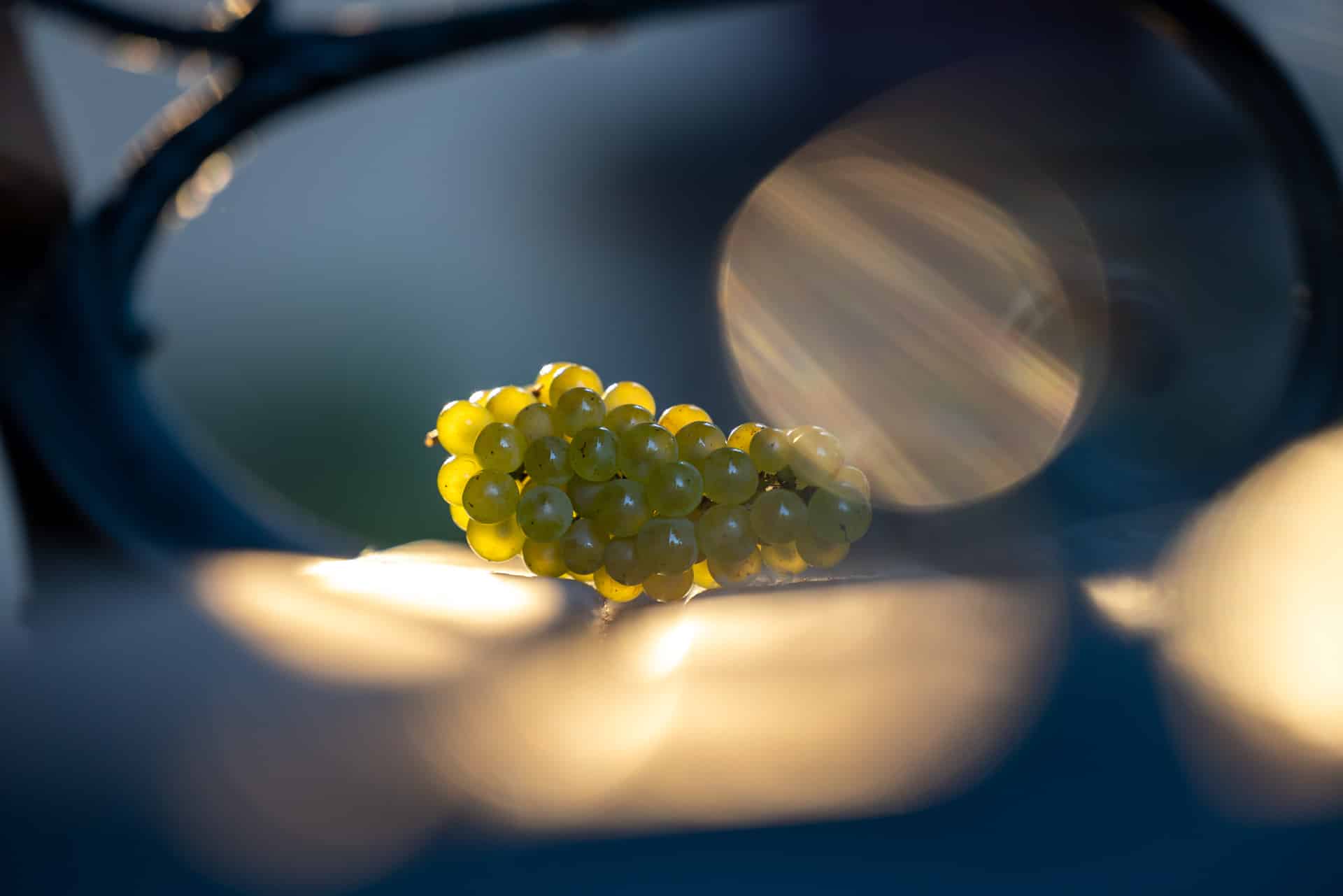Beaujolais wines are an official Partner of the ASI Best Sommelier of the World Contest, Paris 2023. In preparation for this momentous event, we spoke to Gaëtan Bouvier, best french sommelier 2016 and best artisan sommelier of France 2022. He talked to us about the exceptional Beaujolais wines.
Interview conducted during the tasting of exceptional Beaujolais wines at the Paul Bocuse Institute & the restaurant Saisons* – Ecully, October 2022, in preparation for the Best Sommelier of the World Contest, 2023. The video is available at the end of the interview.
What was the purpose of today’s tasting?
“The purpose was to select the cuvées that will represent the Beaujolais region at the Best Sommelier of the World Contest. I teamed up with Philippe Faure-Brac and Laurent Derhé to taste the various crus as well as Beaujolais and Beaujolais Villages, both whites and reds. And we highlighted what we considered to be the quintessence of the cuvées on offer. This special moment enabled us to make some wonderful discoveries that we can’t wait to share with the world of sommellerie next February!”
*The short-listed wines will be presented to sommeliers from around the world at the Best Sommelier of the World Contest 2023.
What stood out for you, Gaëtan Bouvier, sommelier ?
“As a sommelier working in the Lyon region, the potential of Beaujolais wines is not news to me! And it was in fact confirmed once again during the blind tasting this morning. Some crus I particularly like also showed me the collective quality of the work carried out by winemakers, for the various cuvées. It is very interesting to see that some plots, whose wine I tasted a year ago, are now fully revealing how they developed.”
What did you think of the white wines ? What is a Beaujolais chardonnay like ?
“I found the white wines to be brilliant, luminous. The ones we selected are slightly tangy, they are fresh, honest and straightforward. That’s how we like them. They often have lemony tones, but also a certain weightiness.
What really makes the difference are the geological conditions. Between granitic terroirs and clayey-limestone terroirs, the soil leaves its mark on the mouthfeel and the liveliness of the wine. Truly like a sponge, the Chardonnay varietal soaks up the characteristics of these two major geological families of the Beaujolais region. And when all is said and done, this translates beautifully in the glass!”
You mentioned the various terroirs that are characteristic of the Beaujolais region; was this diversity felt during the tasting ?
“The geological diversity of the Beaujolais region was clearly revealed in each glass. We often oversimplify the Beaujolais vineyard by talking about granite. But there are so many lieux-dits, micro-terroirs and soil textures that it completely changes the intrinsic quality of the wines. The elevation and exposure of the crus from hilly vineyards came through during the tasting. I’m thinking about “l’Héronde” for example, a very nice lieux-dit of the Côte-de-Brouilly cru. It stood out for many winegrowers this morning, which is proof that terroirs determine the quality of the wines.”
Gaëtan Bouvier, any favourites ?
“Yes, many! I loved the Domaine des Marrans in Fleurie and the Saint-Amour from Château des Bachelards. The Moulin-à-Vent from Richard Rottiers won me over with Les Thorins, a magnificent Romanèche terroir. I also found the Château des Jacques, a classic. It’s like listening to Mozart: it’s always beautiful and well done! Finally, the Domaine des Nugues, also in Fleurie, blew me away during the tasting with its incredibly powerful concentration.”
You tasted wines that have aged a little, more than the years for some. What did you think of them?
“We need to get away from this idea that Beaujolais wines should only be drunk when they are young. Of course, at first glance, Gamay has, for some cuvées, the ability to express very aromatic notes. It has a crisp and seductive fruitiness when it’s young.
But winegrowers also look for a depth of terroir. When Gamay grapes balance out and mellow with time, they develop incredible smoky notes, particularly on granite. For me these are great, great wines, capable of rivalling the greatest crus in the world. So, we can move away from traditional gastronomic dishes and go for seafood stews or very elaborate gourmet meals.
Beaujolais is also a great gastronomic wine!”
What role do Beaujolais wines play on a wine list ?
“First of all, they appeal to people between the ages of 25 and 40, which is a good thing for the future. In fact, younger customers appreciate the fairly delicate tannins of a Gamay, its fruitiness, its generosity. It’s true that Gamay wines offer an immediacy that even great Beaujolais wines are able to provide.
Plus, nowadays, there is more and more diversity in the Beaujolais region. In terms of vinification, for example, many philosophies coexist. There are very structured wines and then there are those made by the disciples of Jules Chauvet, for example, which are a little more unconventional. And this diversity is also apparent in terms of terroirs. There are ten crus and just as many incredible nuances. And within these crus, we can also identify lieux-dits and plots with specific profiles.
It’s such a large selection and it needs to be represented on a wine list. I think that this wine region has once again become a great classic. This is why the ten Beaujolais crus are a minimum requirement on any wine list today. And no matter where you are in the world!”
What is the best sommelier of the world contest?
“It’s a competition of excellence that showcases our profession to the world. It puts candidates in the spotlight. I hope that this year, the winner will be the French candidate, Pascaline Lepeltier, who we support.
This competition is a fantastic opportunity for the sommelier profession and for all those involved in the industry. The winemakers we work with are not just suppliers. They are the driving force behind our restaurants, our wineries and our wine lists.”
As the coach, so to speak, of the french candidate, how are you helping her to prepare for the competition?
“I wouldn’t go as far as to say I’m a coach! But I’m sharing knowledge and doing everything I can to help Pascaline, that’s for sure! She can count on the team at the Union de la Sommellerie Française to give her all the support she needs.
We invited her here to the Paul Bocuse Institute. Here, she can work in a peaceful environment, where she can talk and share with others. We have brought together all the people we know who can help her, whether they are chefs, sommeliers or maîtres d’hôtel. There’s a whole team to welcome her and make sure she leaves with a little something extra. Whether it’s for her or for the competition.”






